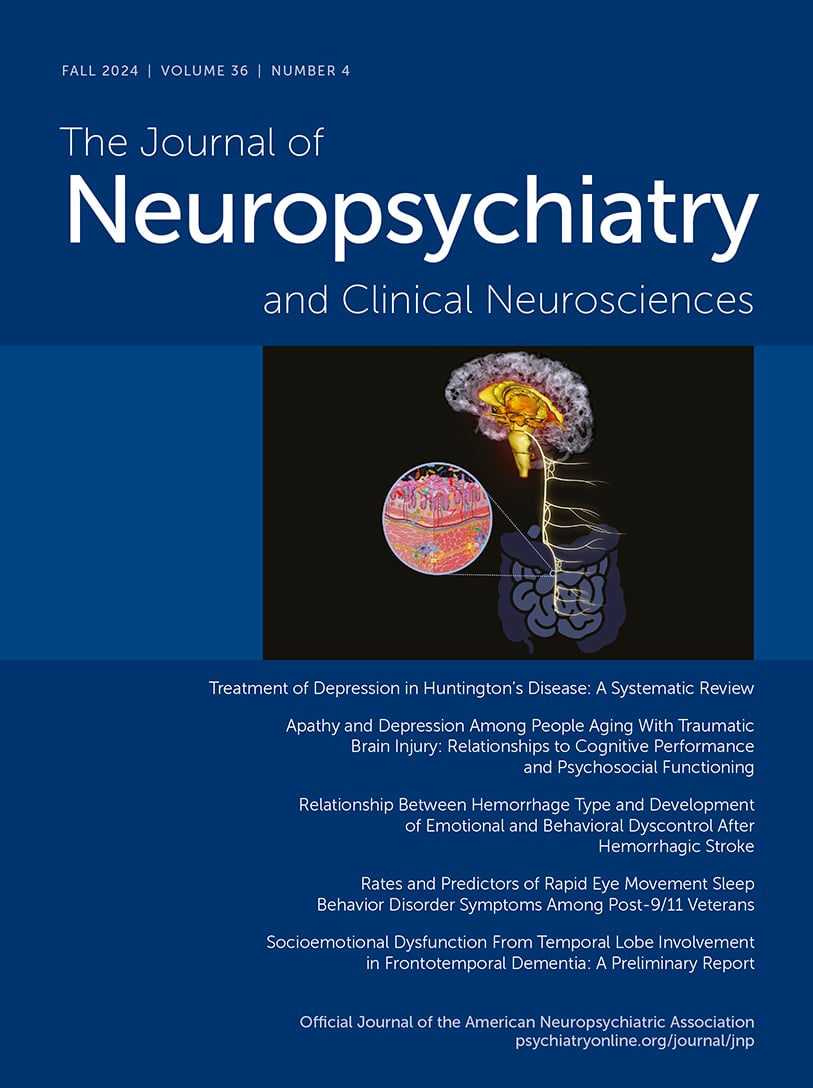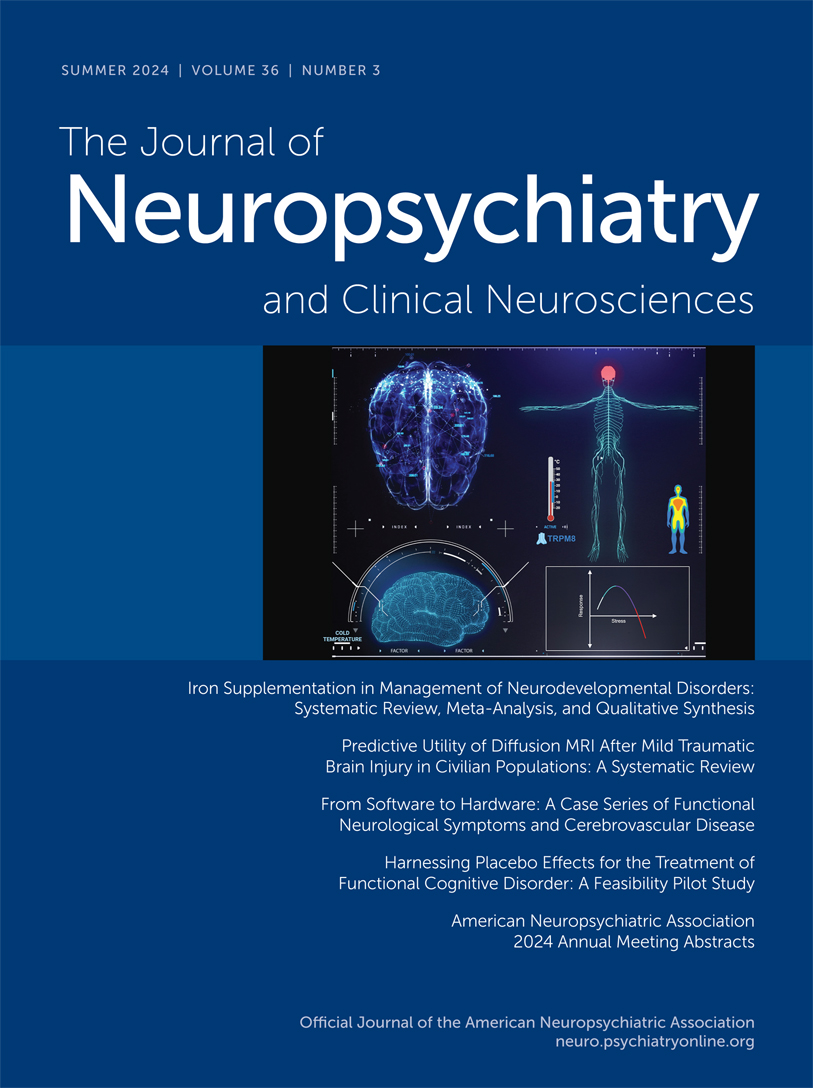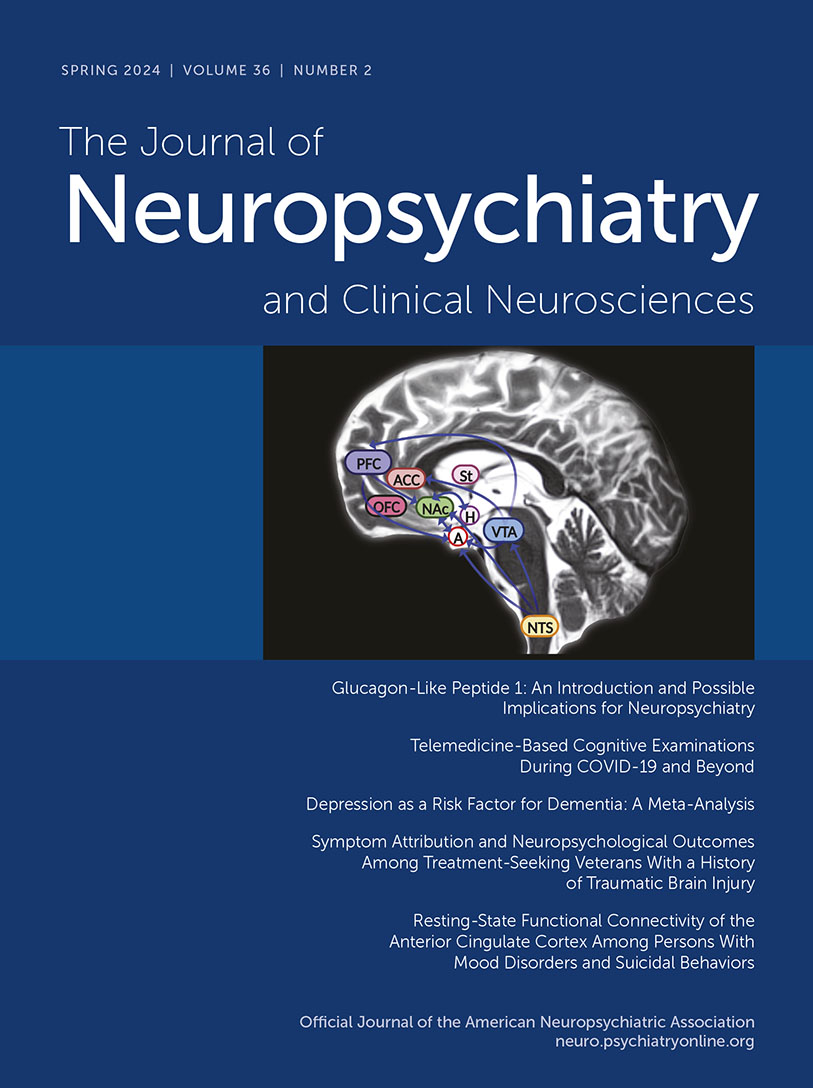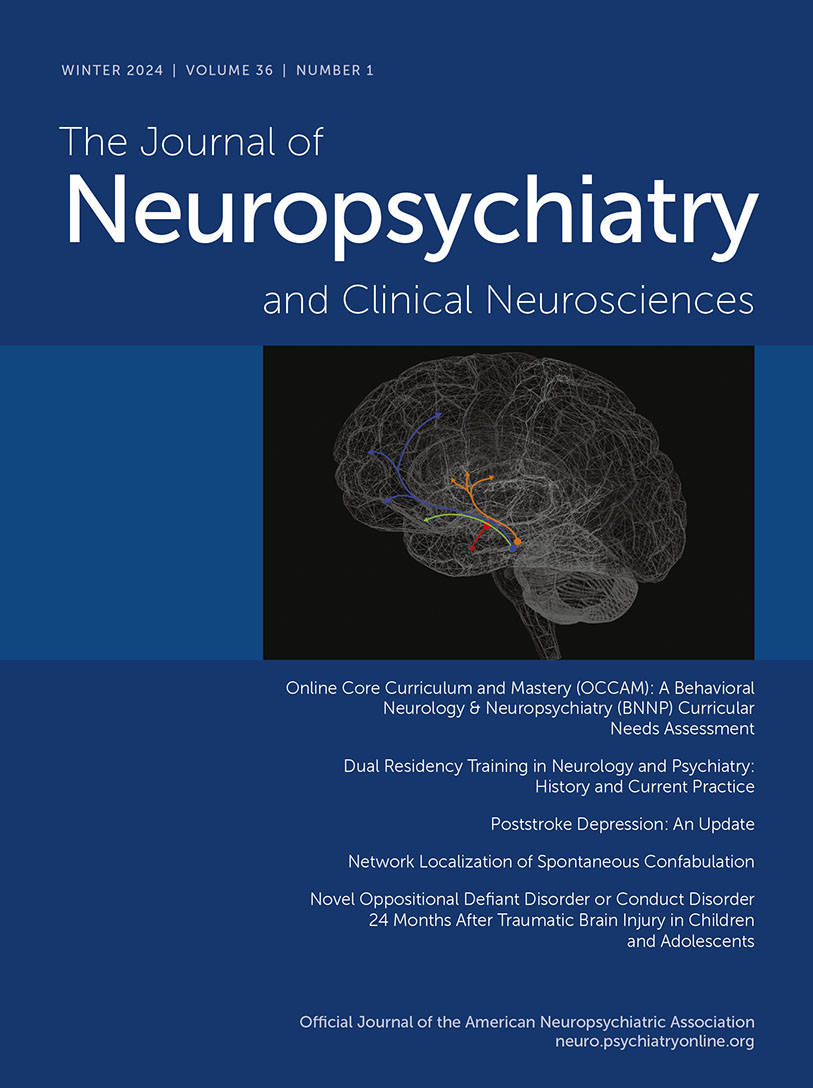The Journal of Neuropsychiatry and Clinical Neurosciences
- Volume 25
- Number 2
- April 2013
Letters
Windows to the Brain
Publication date: 01 April 2013
Pages96–102This installment of the Windows to the Brain series offers an overview of oxytocin's many and varied effects, sites of action in the brain, and stimuli that are implicated in its actions. These include response to infant behavior, such as laughing or ...
https://doi.org/10.1176/appi.neuropsych.13030061Special Articles
Publication date: 01 April 2013
Pages103–110The authors explain and detail the effects of the kinetic energy of blast shock waves on the CNS, specifically, the volumetric blood surge through the brain and large and small blood vessels and its neuropsychiatric effects. In addition to the physical ...
https://doi.org/10.1176/appi.neuropsych.12030058Publication date: 01 April 2013
Pages111–114Examination and comparison of the current DSM-IV-TR and the proposed revisions for the forthcoming DSM-5, with regard to neuropsychiatric aspects of critical illness, identified five important issues. These remain to be addressed in order to improve the ...
https://doi.org/10.1176/appi.neuropsych.12020028Regular Articles
Publication date: 01 April 2013
Pages115–119The author collected clinical data on college athletes diagnosed with concussion between 1998 and 2011, looking at symptom duration, self-report of clinical, mood, and cognitive status, and time until return-to-play and resumption of usual activities. ...
https://doi.org/10.1176/appi.neuropsych.11120374Use of Low-Dose Gabapentin for Aggressive Behavior in Vascular and Mixed Vascular/Alzheimer Dementia
Publication date: 01 April 2013
Pages120–125Recent reports highlighting serious adverse effects of antipsychotic medication in behavioral and psychological symptoms of dementia (BPSD) has led to calls for research on alternative agents. The authors describe the use of low-dose gabapentin to treat ...
https://doi.org/10.1176/appi.neuropsych.12050115Publication date: 01 April 2013
Pages126–133High rostral anterior cingulate cortex (rACC) activity has been shown to predict antidepressant treatment response; however, it is unclear whether this is a fixed versus variable marker of responsiveness. The authors measured rACC theta current density in ...
https://doi.org/10.1176/appi.neuropsych.11110330Publication date: 01 April 2013
Pages134–140The authors explored cross-sectional associations between MRI parameters (lesion metrics, brain volumes, magnetization transfer ratio histograms, and metabolite concentrations) and cognition in 61 patients who experienced clinically-isolated syndromes (...
https://doi.org/10.1176/appi.neuropsych.11090218Publication date: 01 April 2013
Pages141–149The aim of this study was to investigate the clinical, neuropsychological, and self-awareness correlates of impulse-control disorder (ICD) in a group of 17 Parkinson’s disease (PD) subjects with an active ICD and a comparison group of 17 PD subjects ...
https://doi.org/10.1176/appi.neuropsych.12030076Clinical And Research Reports
Publication date: 01 April 2013
Pages150–152Cobalamin (Vitamin B12) has been implicated in the pathogenesis of various neuropsychiatric disorders. A review of 19 patients (14 vegetarians) with demonstrable vitamin B12 deficiency showed varied psychiatric symptomatology, with the majority not having ...
https://doi.org/10.1176/appi.neuropsych.12060144Clinical and Research Reports
Publication date: 01 April 2013
Pages153–156Three elderly patients experienced musical hallucinations (MH) in the context of hearing loss. In at least two of the cases, the onset was sudden. All three patients had pontine T2/FLAIR hyperintense foci on MR scan after the onset of the MH.
https://doi.org/10.1176/appi.neuropsych.12050131Clinical And Research Reports
Publication date: 01 April 2013
Pages157–160The authors studied the efficacy and safety of combined venlafaxine and quetiapine treatment for treatment-resistant depression (TRD) by dividing 95 TRD patients into two treatment groups: a combined venlafaxine (225 mg/day) and quetiapine (400 mg/day) ...
https://doi.org/10.1176/appi.neuropsych.12070171Departments
Errata
Past Issues
View Issues Archive
Vol. 36 | No. 4

Vol. 36 | No. 3

Vol. 36 | No. 2
